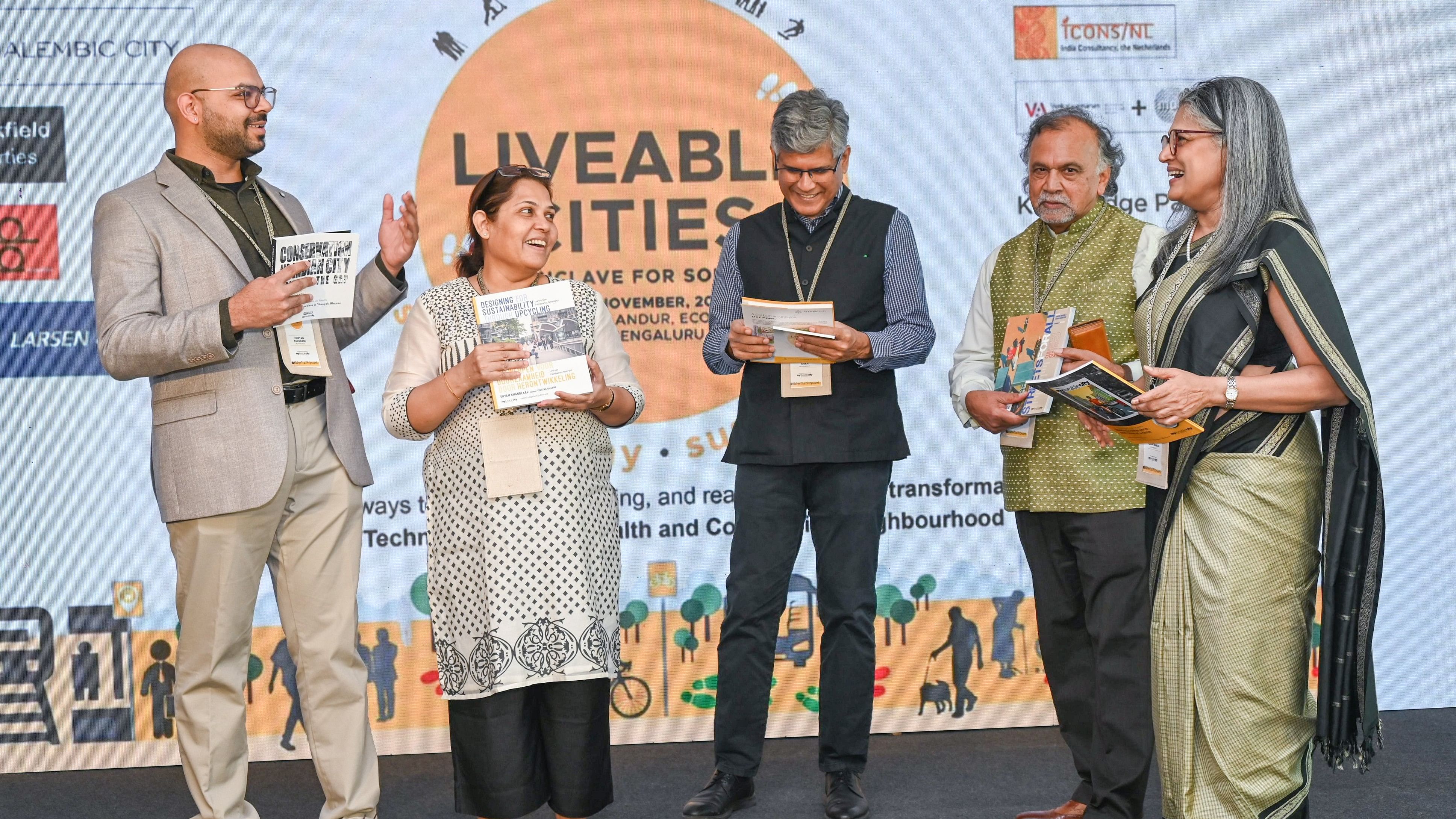
Liveable Cities kicked off in Bengaluru on Saturday.
Credit: DH Photo/S K Dinesh
Bengaluru: A two-day conclave, Liveable Cities—A Conclave for Solutions, organised by MyLiveableCity (MLC), kicked off in Bengaluru on Saturday, focusing on mobility, technology, public health, and community neighbourhood.
Jagan Shah, the conclave director, promised that at the end of the conclave, MLC will try to bring everything together for their immediate surroundings; the city of Bengaluru. ‘We do have a promise to stay rooted to the ground and talk about real solutions,’ he added.
Shyam Khandekar, co-founder of MLC, said that the organisation was started after witnessing the deplorable state of Indian cities due to their rapid and uncontrolled growth. ‘Every three months, there are some changes. We are losing public places, inequity is increasing, the air is polluted, and the city is expanding at its edges, destroying nature there,’ he added.
Khandekar, who lives in the Netherlands, narrated an incident with a cab driver in Bengaluru who was curious about what the Netherlands was like. ‘I told him the Netherlands has lots of water, Olympic golds in men’s and women’s hockey, and is high-tech. That didn’t impress him. I told him my grandchildren can cycle to school safely and walk to school along with their grandmother without issue. That impressed him. It really is the simple things that make cities liveable,’ he added.
Geetam Tiwari, TRIPP Chair Associate Professor for Transport Planning at IIT-Delhi, spoke on shifting transport towards sustainability. ‘Livability and sustainability are very closely interrelated,’ she added.
‘Most Asian cities, and definitely Indian cities, see motorisation because of two-wheelers, not cars. Two-wheelers pose additional challenges when we want to promote active mobility and public transport,’ Tiwari pointed out.
Tiwari also noted that pedestrians really have the lowest priority. ‘Just outside our venue, you are not allowed to walk on the main roads, and the guard kept telling us to walk on this really narrow path. So, we really have to question our priorities,’ she lamented.
The conclave concludes on Sunday.